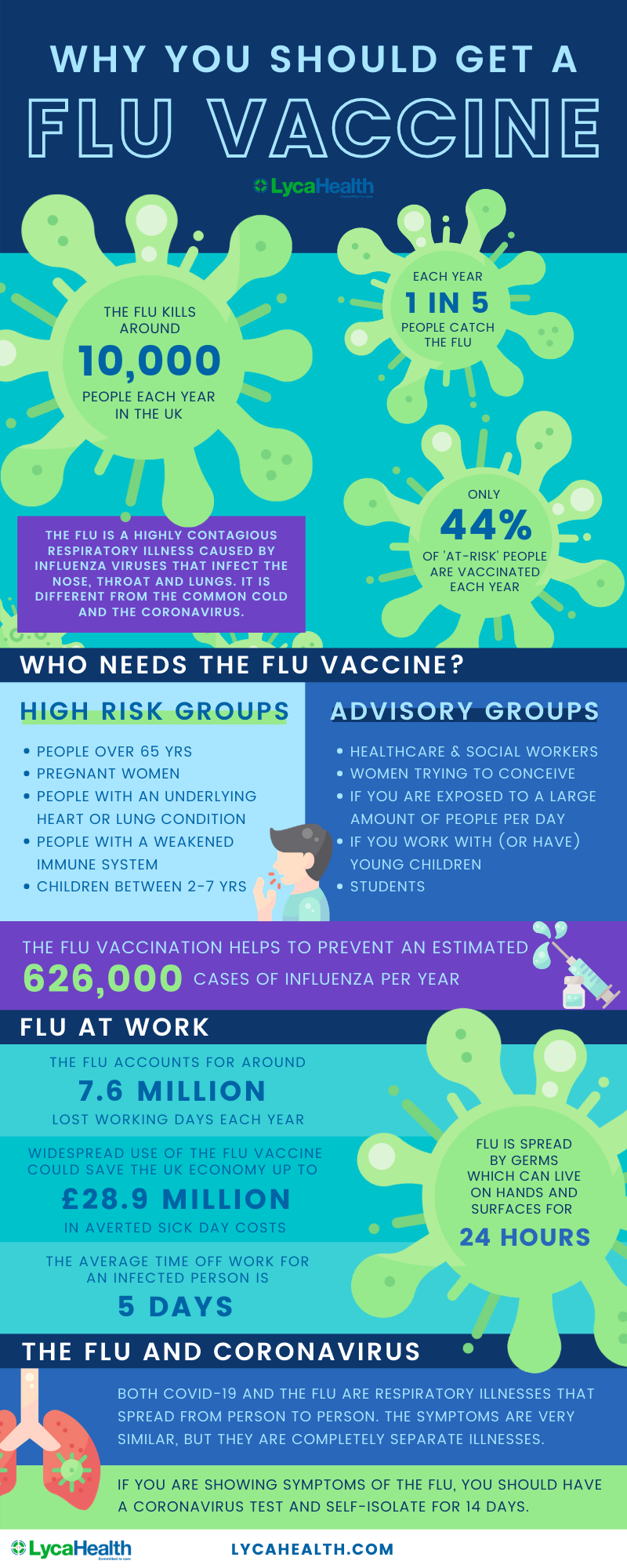21.09.2020
Unfortunately the Coronavirus will be with us for some time. . This means we are heading straight into the autumn and winter months with the active risk of COVID 19, as well as the seasonal influenza. In light of the co-circulation of both respiratory illnesses, Public Health England and the UK government are urging people more strongly than ever to get involved in the national flu immunisation programme, in order to protect us all and especially the vulnerable population and the healthcare system.
The flu outbreak causes around 10,000 deaths each year in England and Wales, many of which could be prevented with the annual flu vaccine. This year, we cannot afford for a significant flu outbreak on top of the pandemic – not only can it overwhelm hospitals and take its toll on healthcare professionals, but is also likely to seriously affect a person who might catch both at once. Although we don’t yet know the effects of contracting both the flu and the coronavirus at the same time, we do know the havoc the flu alone can cause in an infected individual – so the more we can avoid this, the better.
Nevertheless, the flu is a deadly disease in its own right. Although the symptoms of the flu are generally unpleasant and uncomfortable in previously healthy people, it can cause more severe complications in certain vulnerable groups, and the result can even be fatal. A vaccine is the most effective way to protect ourselves and the people around us against this unpredictable virus.

The symptoms of the flu and the symptoms of the coronavirus are very similar. These symptoms include:
A flu vaccine can be given to everyone from the age of 6 months old, but is especially strongly urged to people to fall under any of the following groups, as they are at the highest risk of complications as a result of the flu:
The flu jab is also recommended for people who fall into the following groups:
If you do not fall into any of the above categories, it is still beneficial to get the flu jab due to the prevalence of the coronavirus – it may not cause serious consequences, but you will still feel the full force of flu symptoms – and let’s face it, being ill just isn’t nice!
The best time to receive a flu vaccine is at the start of autumn, before the start of the flu season. Ideally, book your flu jab in for October or early November, which ensures you are protected for the peak of the flu season which runs from December to February (although outbreaks can start as early as October and finish as late as May). We offer flu vaccines from now right through the flu season, so you can come in at any time.
The flu vaccine changes every year, so that’s why it’s important to still get vaccinated this year even if you had the flu vaccination last year.
Here at LycaHealth, we provide a specialised flu vaccine at our Canary Wharf clinic. If you would like to book an appointment for you or your family, then you can do so on our private GP booking form. Or, get in touch regarding our corporate flu vaccination service.
Stay up to date
To request information on any of our other services, please call or complete the enquiry form below: